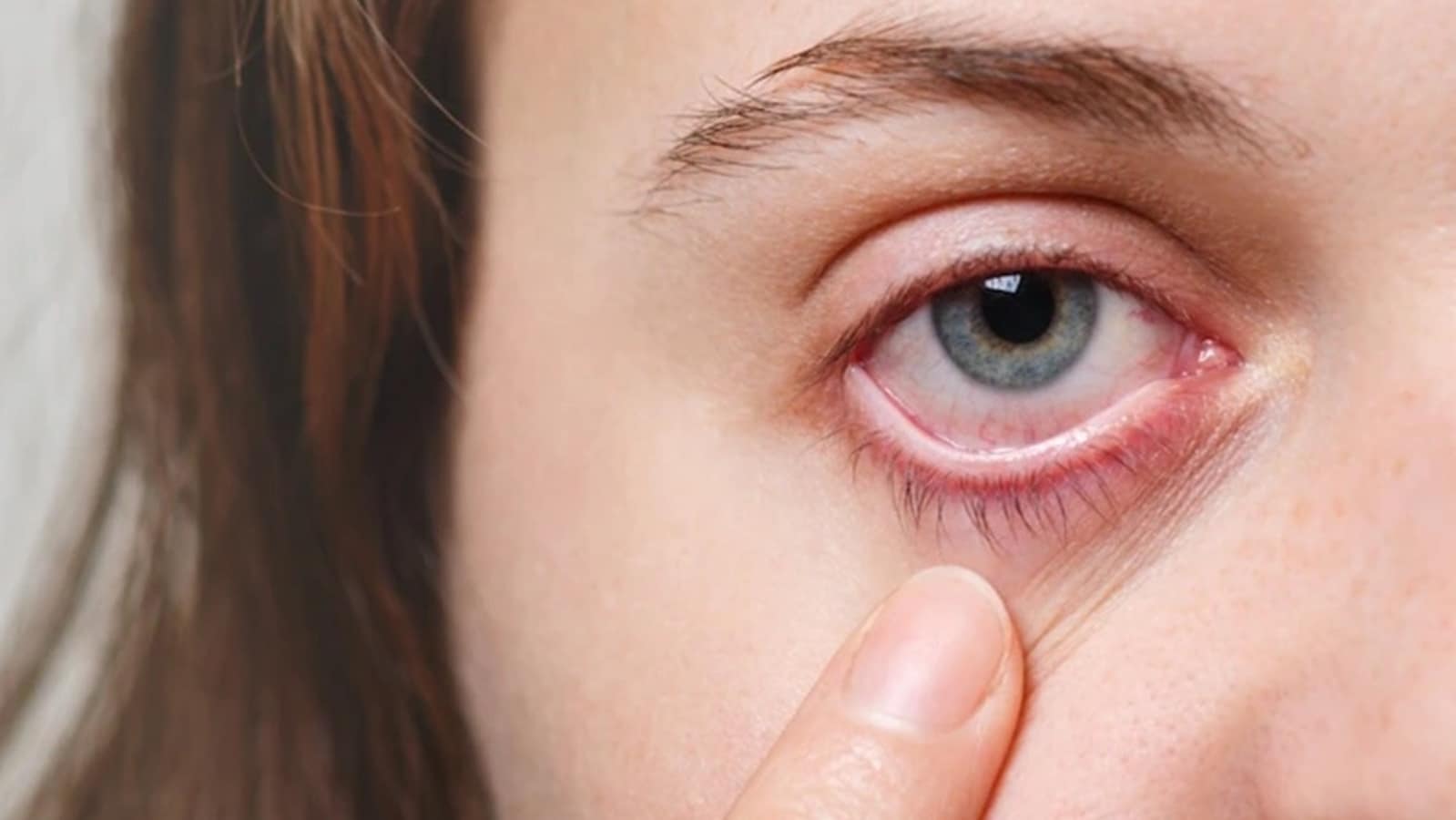Eczema Around Eyes: Causes, Symptoms, Treatments, and Prevention
Eczema, a skin condition that causes inflammation and irritation, can affect sensitive areas like the eyes. This article delves into the causes, symptoms, effective treatments, and preventive measures for managing eczema around the eyes.

Understanding Eczema Around Eyes
Eczema around the eyes, often referred to as eyelid eczema or periocular eczema, is a variant of the skin condition that specifically impacts the delicate skin surrounding the eyes. Due to the thin and sensitive nature of this skin, eczema can cause significant discomfort and aesthetic concerns.
Common Causes and Triggers
Eczema around the eyes can be triggered by various factors, including allergies to cosmetics, environmental allergens, harsh skincare products, or even stress. Genetics also play a role, as individuals with a family history of eczema are more susceptible.
Recognizing Symptoms
Detecting eczema around the eyes early is crucial for effective management. Common symptoms include redness, itching, dryness, swelling, and a burning sensation. The skin may appear scaly or develop small, fluid-filled bumps.
Navigating Treatment Options
When dealing with eczema around the eyes, it’s essential to consult a dermatologist for a personalized treatment plan. Depending on the severity of the condition, treatments may include:
Topical Steroids:
Mild to moderate cases can often be managed with prescription or over-the-counter corticosteroid creams or ointments.
Moisturizers:
Keeping the skin well-hydrated with hypoallergenic moisturizers can help alleviate dryness and irritation.
Topical Calcineurin Inhibitors:
These non-steroidal creams can be used for sensitive areas like the eyelids and help control inflammation.
Antihistamines:
For cases involving significant itching, oral antihistamines may provide relief.
Avoiding Triggers:
Identifying and avoiding triggers like certain cosmetics or allergens is essential to prevent flare-ups.
Gentle Skincare and Hygiene Practices
Proper skincare and hygiene are crucial to manage eczema around the eyes:
Use gentle, fragrance-free cleansers.
Avoid harsh makeup and skincare products.
Remove eye makeup carefully using oil-free removers.
Pat the skin dry; avoid rubbing.
Apply moisturizer immediately after cleansing.
Lifestyle Modifications for Management
Lifestyle changes can contribute to better eczema management:
Diet:
Some individuals find that certain foods trigger flare-ups. Keeping a food diary can help identify potential triggers.
Stress Management:
Stress can exacerbate eczema. Practice relaxation techniques like deep breathing and yoga.
Allergen Avoidance:
If allergies are a trigger, take steps to minimize exposure to allergens.
Prevention Strategies
Preventing eczema flare-ups around the eyes involves protective measures:
Sun Protection:
Wear sunglasses and apply sunscreen around the eyes.
Avoid Allergens:
If you’ve identified specific allergens, make efforts to avoid them.
Proper Eyecare:
Ensure your eyecare products are hypoallergenic and gentle.
Consulting a Professional
While home care can be effective, consulting a dermatologist is crucial, especially for severe or recurring cases. A dermatologist can provide accurate diagnosis, recommend appropriate treatments, and guide you toward optimal management.
Maintaining Confidence
Dealing with eczema around the eyes can affect self-esteem. Remember:
You’re not alone; many individuals face this condition.
Focus on the positive aspects of yourself and practice self-compassion.
Frequently Asked Questions (FAQs) About Eczema Around Eyes
Q1: What is eczema around the eyes?
A1: Eczema around the eyes refers to a skin condition where inflammation and irritation affect the delicate skin surrounding the eyes, causing redness, itching, and discomfort.
Q2: What causes eczema around the eyes?
A2: Eczema around the eyes can be triggered by various factors, including allergies, genetics, harsh skincare products, environmental irritants, and stress.
Q3: What are the common symptoms of eczema around the eyes?
A3: Common symptoms include redness, itching, dryness, swelling, fluid-filled bumps, and a burning sensation in the skin around the eyes.
Q4: How is eczema around the eyes diagnosed?
A4: Diagnosis involves a thorough examination by a dermatologist. Medical history, visual inspection, and potential allergy testing may be conducted to determine the cause and severity.
Q5: What are the available treatments for eczema around the eyes?
A5: Treatments include topical corticosteroids, moisturizers, non-steroidal creams, antihistamines, and lifestyle modifications to manage triggers and promote skin health.
Q6: Can I use regular skincare products if I have eczema around my eyes?
A6: It’s recommended to use hypoallergenic and fragrance-free products specifically formulated for sensitive skin to prevent exacerbating eczema symptoms.
Q7: Are there lifestyle changes that can help manage eczema around the eyes?
A7: Yes, lifestyle adjustments like stress management, allergen avoidance, and a balanced diet can contribute to managing eczema symptoms.
Q8: How can I prevent eczema flare-ups around my eyes?
A8: Sun protection, proper skincare, avoiding known triggers, and following a dermatologist’s guidance are essential for preventing flare-ups.
Q9: When should I consult a dermatologist for eczema around the eyes?
A9: If you experience persistent or severe symptoms, it’s advisable to consult a dermatologist for accurate diagnosis and personalized treatment recommendations.
Q10: How can I boost my confidence while dealing with eczema around the eyes?
A10: Focus on self-care, practice self-compassion, and connect with support groups or professionals to manage both physical and emotional aspects of the condition.
Conclusion
Eczema around the eyes can be managed with a combination of medical guidance, proper skincare, and lifestyle adjustments. By understanding the causes, symptoms, treatments, and preventive strategies, you can take control of your skin health and enjoy a comfortable and confident life.




